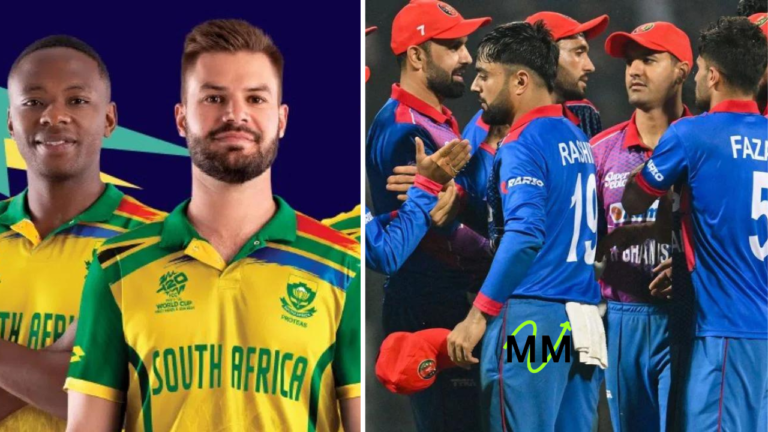England Cricket Team vs New Zealand National Cricket Team Timeline: A Historical Rivalry

Cricket, often described as a gentleman’s game, has seen many rivalries that have become part of the sport’s lore. One such rivalry is between the England Cricket Team and the New Zealand National Cricket Team. Over the decades, their encounters have produced some of the most memorable moments in cricketing history. This article delves into the timeline of their rivalry, highlighting the significant matches, legendary players, and evolving dynamics between these two teams.
Early Encounters (1930s – 1950s)
The cricketing journey between England and New Zealand began in 1930 when the two teams faced each other for the first time in a Test match. The match was held at Lancaster Park in Christchurch, marking New Zealand’s debut in Test cricket. England, one of the game’s pioneers, dominated this inaugural series, showcasing their experience and depth. Although new to the Test arena, New Zealand displayed promising potential, setting the stage for a budding rivalry.
During the early years, England’s superiority was evident. The English team, led by seasoned cricketers, easily outplayed the Kiwis in most encounters. Despite the lopsided results, these early matches were crucial for New Zealand as they laid the foundation for their cricketing culture. The 1950s saw New Zealand slowly improving, learning from their defeats, and gradually building a more competitive side. The rivalry, still in its infancy, was characterized by England’s dominance, but the seeds of future competitiveness were sown.
Post-War Era (1950s – 1970s)
The post-war period they marked a significant evolution in the England-New Zealand cricket rivalry. Under the leadership of iconic figures like Bert Sutcliffe, New Zealand began to challenge England more effectively. The 1955-56 series in New Zealand is particularly noteworthy, as the Kiwis managed to secure their first-ever Test win against England in Auckland. This victory was not just a win on the scoreboard; it symbolized New Zealand’s growing confidence and ability to compete on equal terms.
Throughout the 1960s and 1970s, the rivalry intensified. Despite being a formidable force, England found themselves facing a much-improved New Zealand side. Matches became more competitive, with both teams exchanging victories. The 1973 series in England saw New Zealand’s first-ever Test win on English soil, a historic moment that further fueled the rivalry. The era also witnessed the rise of legendary players like Glenn Turner for New Zealand and Geoff Boycott for England, who played pivotal roles in their respective teams’ successes.
Modern Era Begins (1980s – 1990s)
The 1980s marked the beginning of the modern era of cricket, with the advent of limited-overs formats bringing a new dimension to the England-New Zealand rivalry. One of the most memorable encounters during this period was the 1983 Cricket World Cup semi-final, where England triumphed over New Zealand in a closely contested match. This era also saw the introduction of new strategies and tactics as both teams adapted to the fast-paced nature of One Day Internationals (ODIs).
The 1990s continued to build on the growing intensity of the rivalry. The 1992 Cricket World Cup, co-hosted by New Zealand, featured another iconic match between the two teams. Under the innovative captaincy of Martin Crowe, New Zealand introduced unconventional tactics like opening the bowling with a spinner, which caught many teams off guard, including England. Although England managed to win their World Cup encounter, New Zealand’s performance throughout the tournament showcased their growth as a cricketing nation.
During this period, Test matches between the two teams remained fiercely competitive. England and New Zealand were often evenly matched, with series victories frequently swinging between the sides. The rivalry was no longer about one team dominating the other but had evolved into a contest of equals, where the outcome was uncertain until the final ball was bowled.
The 21st Century Rivalry (2000s – Present)
As cricket entered the 21st century, the rivalry between England and New Zealand continued to evolve. The new millennium has brought about significant changes in the cricketing world, with the rise of Twenty20 cricket and the introduction of the ICC World Test Championship. These developments added new layers to the rivalry, as both teams sought to assert dominance across all formats.
One of the most significant encounters in recent history was the 2015 Cricket World Cup group-stage match between England and New Zealand. Played in Wellington, the game turned out to be one-sided, with New Zealand, led by Brendon McCullum, demolishing England by eight wickets. This humiliating defeat for England led to a complete overhaul of their limited-overs strategy, which would eventually bear fruit in the coming years.
The rivalry reached its zenith during the 2019 Cricket World Cup final at Lord’s, a match that is widely regarded as one of the greatest in the sport’s history. Both teams fought fiercely, with the game ending in a tie after the regulation 50 overs and the Super Over. England was declared the winner on the boundary count rule, a decision that remains controversial to this day. This epic encounter highlighted the intense rivalry and showcased the spirit and sportsmanship between the two teams.
In Test cricket, the rivalry has also seen some memorable moments in recent years. New Zealand’s series victory in England in 2021 was a testament to their strength in the game’s longest format. The series was marked by disciplined bowling and resilient batting from the Kiwis, who outplayed England in their backyard. This victory was a significant achievement for New Zealand, reaffirming their status as one of the top Test teams in the world.
Read More
Impact Players and Legendary Performances
Over the years, several players have left an indelible mark on the England-New Zealand rivalry. For New Zealand, players like Richard Hadlee, Martin Crowe, and Brendon McCullum have been instrumental in shaping the team’s fortunes. Hadlee, one of the greatest all-rounders in cricket history, often tormented the English batters with his lethal swing bowling. Crowe’s elegant batting and astute captaincy, particularly during the 1992 World Cup, made him a standout figure in the rivalry.
For England, the rivalry has seen contributions from legends like Ian Botham, Andrew Flintoff, and Joe Root. With his all-round brilliance, Botham played a crucial role in several memorable victories against New Zealand. Flintoff’s fiery pace and aggressive batting excited the contests in the early 2000s. In recent years, Joe Root’s consistent performances have been pivotal in England’s successes, particularly in Test cricket.
These players and many others have excelled individually and inspired their teams to raise their game during England vs. New Zealand encounters. Their contributions have been central to the enduring appeal of this rivalry.
Statistical Highlights
The England vs. New Zealand rivalry is rich in statistical milestones. In Test cricket, the two teams have faced each other over 100 times, with England historically having the upper hand in overall victories. However, New Zealand has closed the gap in recent years, with several series wins at home and away. In ODIs, the rivalry has been more evenly balanced, with both teams winning a fair share of matches. The T20 format, though more recent, has also seen some thrilling encounters, reflecting the unpredictable nature of the shortest format.
One of the most significant statistical highlights is the 2019 Cricket World Cup final, where both teams scored exactly 241 runs, leading to the first-ever Super Over in a World Cup final. The boundary count rule, which eventually decided the winner, remains one of the most debated aspects of cricketing history. Regarding individual records, players from both teams feature prominently in all-time lists for runs, wickets, and catches, further underscoring the quality of cricket that rivalry has produced.
Cultural and Global Impact of the Rivalry
The England vs. New Zealand cricket rivalry has profoundly impacted the cricketing cultures of both nations. In New Zealand, cricket has often played second fiddle to rugby, but victories over England have always been a source of immense national pride. These wins symbolize New Zealand’s ability to punch above its weight on the global stage.
In England, matches against New Zealand are often seen as a test of character. The Kiwis’ reputation for playing hard but fair cricket has earned them respect in the English cricketing community. The rivalry has also garnered significant global attention, particularly during major ICC tournaments, where fans eagerly anticipate their encounters.
Media coverage and fan engagement have intensified the rivalry. Social media platforms buzz with discussions and debates whenever the two teams face off, reflecting the widespread interest in this contest. The rivalry, while intense, has also been characterized by mutual respect between the players, adding a unique dimension to the competition.
Recent Developments and Future Outlook
In recent years, the England-New Zealand rivalry has produced compelling cricket. The rise of young talents in both teams, combined with the experience of seasoned campaigners, suggests that the rivalry will remain fiercely competitive in the years to come. New Zealand’s recent success in Test cricket, including their victory in the inaugural ICC World Test Championship in 2021, has elevated their status in the cricketing world, making future encounters with England even more intriguing.
Looking ahead, both teams are likely to continue evolving, adapting to the changing dynamics of modern cricket. The rivalry will likely see new chapters written in all formats, with the possibility of more thrilling World Cup encounters, closely fought Test series, and high-octane T20 matches. As both teams strive for excellence, the England vs. New Zealand rivalry will remain one of the most captivating in the cricketing world.
Read More
Conclusion
The timeline of the England Cricket Team vs. New Zealand National Cricket Team rivalry is a testament to cricket’s enduring appeal. From the early days of England’s dominance to the modern era of closely contested matches, this rivalry has evolved into one of the sport’s most compelling narratives. The players, matches, and moments defining this rivalry continue to resonate with cricket fans worldwide. As both teams look to the future, the England vs. New Zealand rivalry will continue to be a highlight of the international cricket calendar, providing drama, excitement, and unforgettable memories for years to come.






